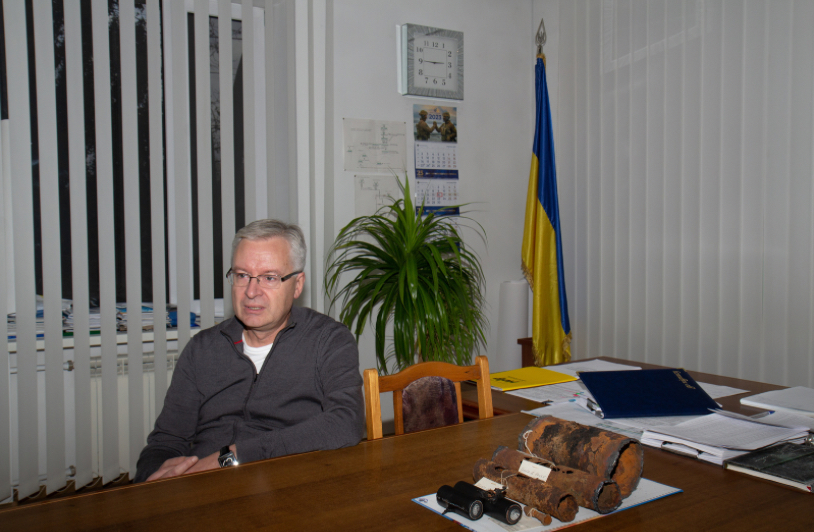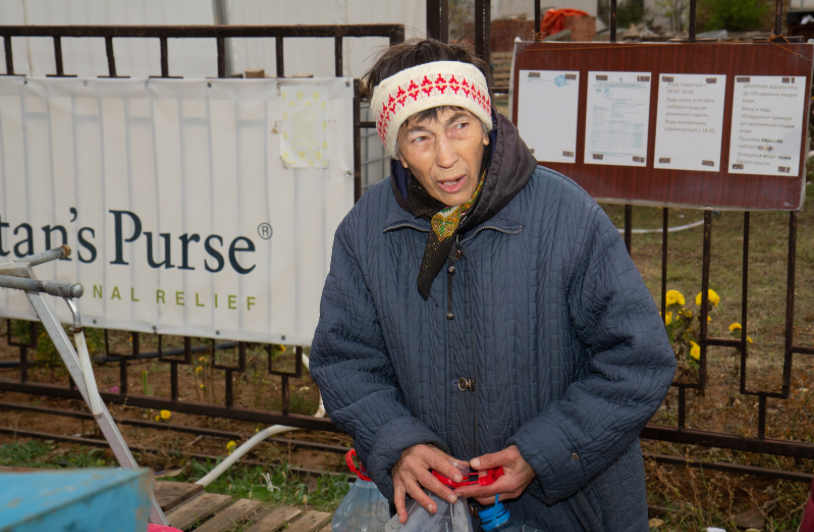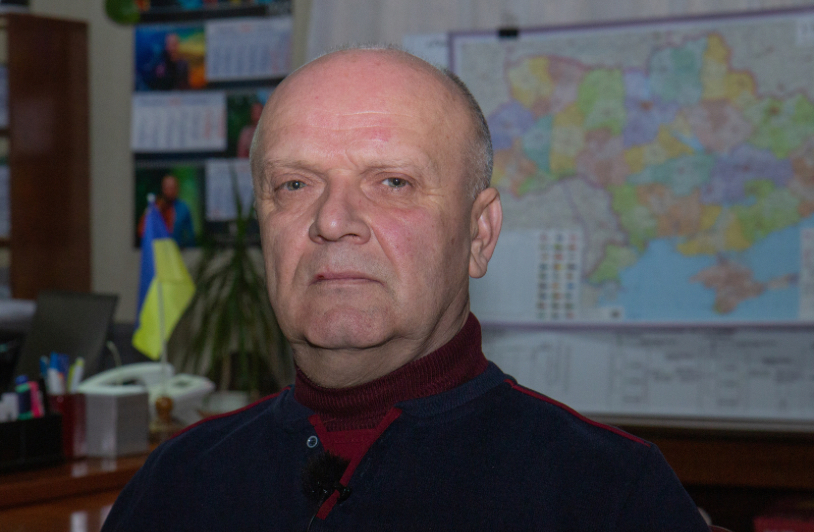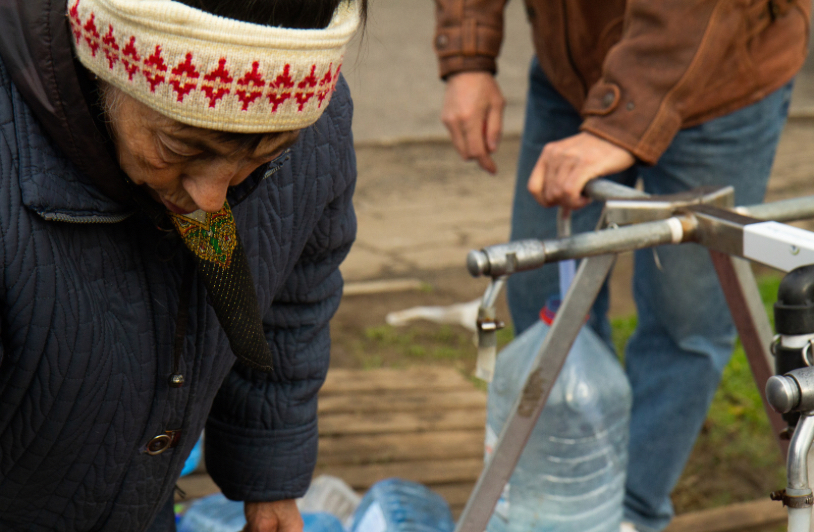Hard Lessons Learned Last Winter Have Helped Residents and Officials of Mykolaiv, Ukraine Prepare for Tough Months Ahead
There hasn’t been a single Russian soldier within 35 miles of Mykolaiv in more than a year. Despite their efforts in 2022, no Russian soldier ever even entered the southern Ukrainian city. In comparison to other war-torn cities around the country, this makes Mykolaiv relatively fortunate. But still, Russian forces got close enough to make a lasting impact.
Just a few weeks into the war, Russian sappers set off explosives at four points along a 40-mile-long pipeline that pumped water from the then Russian held Dnipro River to Mykolaiv.
“In April 2022, when the aggressor realized that he was unable to enter and capture Mykolaiv, I believe that he found a new type of weapon: to deprive the city of half a million of water so that the city would simply die and surrender on its own,” said Boris Dudenko, CEO of municipal water authority Mykolayivvodokanal.
The city’s residents have been without clean water ever since.

This is true, despite that Ukrainian forces last fall pushed their Russian adversaries back across the Dnipro River and despite their recent crossing of the Dnipro itself. Army spokeswoman Natalia Gumenyuk claimed Sunday that Ukrainian forces have advanced up to eight kilometers into the deeply fortified Russian-held territory on the opposite bank.
The catastrophic damage to the water supply system however was quite literally already done, and it doesn’t look like much will change soon. It will be another winter of filling jugs of water at water stations scattered throughout the city and hauling them home for cooking, washing, laundry and drinking.
“The problem now is access to the repair site, because the pumping station is constantly under fire and it is now impossible to work there,” Dudenko said.
The only water available at home taps — when the water is running — is salty and brackish, pumped in from the nearby Southern Bug estuary. City officials turned to the estuary soon after the sabotage of Dnipro pipeline. It wasn’t exactly an ideal solution, but it was this or nothing. This salty water is called “technical water,” and is just barely clean for showers, but practically nothing else — especially not drinking or cooking. It’s often dirty and brown and is widely known among residents to cause skin rashes.
City technicians also worry that this water is wreaking havoc on the pumps and pipes themselves. This damage could ultimately cost the city and individual building owners millions of dollars to repair. Dudenko said that the worst case scenario requires “replacement of almost all pumping equipment and the entire configuration of the water supply and sanitation system.”
“The salt water that is in the system has caused a lot of problems,” he said. “We will be repairing our pipelines, especially steel ones, for a long time. We also do not fully understand what difficulties we will encounter when operating, for example, pumping equipment. We need to restore at least 240 kilometers of networks.”
Instead, many people in Mykolaiv rely on reverse osmosis water purifications systems set up by the city and local charitable organizations. They’re scattered across the city and open to anyone. Churches and charitable organizations provide assistance.
The Baptist Church of Jesus Christ in the north of the city, with the help of the organization Samaritan’s Purse, dug a well and installed a reverse osmosis system last summer. The church also provides firewood to residents and clothes and food for refugees fleeing fighting in nearby Kherson.

“Last winter was very difficult for us,” Deacon Serhiy Vasylenko said. “Of course, we hope that this winter will be easier, but we are ready for any scenario.”
This winter across Ukraine, there will almost certainly be blackouts. The Russian government recently started striking electrical infrastructure across the country in what is widely believed to be the beginning of a winter-long strike campaign against Ukraine’s electrical grid.
Workers have spent much of the last year fortifying infrastructure in preparation. Yevhen Gladkov, head of the Department of Housing and Communal Services of the Mykolaiv Regional State Administration, said that the city has provided internationally supplied generators to key enterprises, such as to heating providers and for sewage and water management systems. Gladkov expects to use them.
“We are realists. Internally and morally, we are ready for any scenario. We understand that we will not be able to protect ourselves from a missile attack,” he said. “But a very large amount of work has been carried out, which allows us to be more confident when responding to emergency situations.”

Many in the city approach the challenges ahead with some nonchalance. One woman who came to The Church of Jesus Christ to fill her water bottle, said that her family can get water from their well at home and that she really “has no trouble.”
Gladkov too seemed to almost joke. But, despite being short on equipment that could help mitigate the impacts of the expected strikes, he expressed confidence in the city’s ability to respond.
“We employ qualified people both in the field of electricity and in the field of emergency situations,” he said. “They went through a lot of practice in 2022.”
Artem Perfilov contributed in translating the response of sources.





